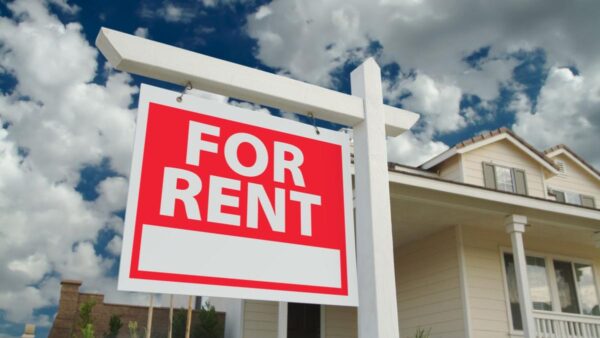051 8439995, 042 35911332

A significant number of individuals who have recently migrated to Canada opt for the rental route when it comes to securing a place to live, rather than immediately purchasing a property. Given the potential stress associated with finding a new home, this article aims to furnish you with essential information to grasp the process of renting in Canada.
Basic Steps to Keep in Mind While Finding a Rental
Discovering rental opportunities can be accomplished through a variety of online and offline methods. Online platforms like Condos.ca, Padmapper, and Zumper provide comprehensive listings of available accommodations in various neighborhoods, along with corresponding rental prices. Alternatively, you have the option to enlist the assistance of a realtor or real estate agent who can guide you in your search.
One of the simplest approaches to finding rental housing involves personally exploring the desired area and keeping an eye out for “For Rent” signs displayed on houses or buildings. In such instances, you can contact the provided phone number or inquire with the building manager to gather information about the rental options.
When considering your preferred location, it is crucial to take certain factors into account. These factors may include the average rental costs in the area, availability of public transportation, commute times, proximity to schools and your workplace, accessibility to grocery stores, availability of parking spaces, and crime rates. Thoroughly assessing these elements will aid in making an informed decision about the most suitable place to reside.
Documents Required For Renting in Canada

To secure a rental property in Canada, there are specific documents that you will typically need to provide as evidence of your ability to afford rent and make timely payments. Landlords commonly request the following:
- Employment letter: This letter should outline your employment status and salary details, verifying your financial capability.
- Credit report: A credit report provides information about your credit history and demonstrates your reliability in meeting financial obligations.
- References: References from previous landlords can vouch for your responsible behavior as a tenant, giving landlords confidence in renting to you.
- Bank statements: Providing recent bank statements showcases your financial stability and ability to cover rental costs.
- Photocopies of identification: Landlords often require photocopies of your identification documents, such as a passport or driver’s license, for identity verification.
Meeting these requirements may pose challenges for newcomers to Canada who may not yet have established credit history or obtained a job letter. However, there are a few options and tips that can assist you in finding a rental unit under such circumstances.
Strategies for Renting in Canada Without Employment
If you are currently without a job, demonstrating that you have sufficient funds to cover several months of rent can significantly strengthen your rental application. This showcases your reliability as a tenant. Contacting your bank and requesting a letter confirming the availability of funds can be helpful in this regard.
Another option is to seek a guarantor or co-signer. A guarantor or co-signer is someone who agrees to assume responsibility for paying rent if you are unable to do so. This individual is typically a family member or a close friend, and entering into such an agreement is legally binding.
Each province in Canada has specific regulations regarding rent deposits that tenants are required to pay before moving in. For example, in Ontario, renters are typically required to pay the first and last month’s rent. If you are missing essential documents, such as an employment letter, offering additional months of rent in advance can serve as an incentive for landlords to consider your rental application over others. However, it is important to note that landlords are not permitted to demand this type of upfront payment; it is entirely optional and should be offered only if you are comfortable with it.

It is crucial to be aware that landlords are prohibited from requesting your Social Insurance Number (SIN). Additionally, they are not allowed to inquire about your ethnic background, religion, marital status, or sexual preferences.
Exploring rental options in individually owned or basement apartments can also be beneficial. These apartments, as compared to those managed by property management companies, often have simpler application processes. In larger rental buildings, the application process may involve rigorous credit and employment verifications. Individual landlords tend to be more flexible and accommodating in considering individual circumstances.
Lease Agreements in Canada
The lease agreement is a legally binding document that outlines the terms and conditions agreed upon between you and your landlord. It typically includes the following details:
- Rent Amount: The lease specifies the monthly rent you are obligated to pay.
- Rent Payment Method: It indicates the accepted payment methods for rent, such as cheque or direct deposit.
- Lease Duration: The dates of your lease, including the start and end dates, are mentioned in the agreement.
- Rental Rules: The lease may include rules regarding smoking, pet ownership, and other regulations that govern your tenancy.
- Lease Termination Conditions: These outline the conditions and procedures for ending or canceling the lease agreement.
- Subleasing provisions: If subleasing is permitted, the lease will provide information about the conditions and requirements.
- Responsibility for Repairs: The lease specifies who is responsible for carrying out and covering the costs of repairs.
- End of Lease Arrangements: The agreement may outline the procedures and expectations for the end of the lease, such as move-out inspections and security deposit returns.
After signing the lease, you might need to have the landlord help you transfer utilities, such as hydro, into your name from the previous tenants. You can start moving into your new house as soon as you have the keys.
